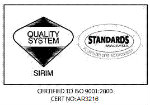“We Take Care Of The Family”: A Big Challenge During Mco
In his speech at the 2020 National Family Month Celebration, the Prime Minister, Tan Sri Muhyiddin Yassin, stated that the theme-elect “We Take Care of the Family” is to raise awareness and propagate the commitment to the family institution within all layers in the community.
The family is the basic unit in the formation and establishment of the human civilisation. The family units are to be socially and economically combined, mingling, interacting in its own dynamics, brewing and breeding its way to much larger groups of population until the building of a nation and civilisation is completed. The foundations in a family with proper core values, can be the main pillars in supporting the stability and integrity of a nation as a whole. We should never overlook little daily activities such as the capability to love, tolerance and the spirit of neighbourliness in forming a peaceful and prosperous nation.
Currently, in the midst of facing the threats posed by Covid-19, each and one of us has our own roles to play in order to protect our families from the pandemic, as well as being responsible in curbing the spread of Covid-19 in the community.
Since the implementation of the Movement Control Order (MCO) on 18 March 2020, our homes should be our safe haven, sanctuary, the cliched “home sweet home”. Indeed, it should be our best fortress of defence against Covid-19. Should we have to leave, we must adhere to all the Standard Operating Procedures. Our homes can only be a fortress as we hope it would be if our family members do the best in their capacity in the best possible way. It is imperative now more than ever, since most states in the country are still subjected to the Conditional MCO (CMCO).
How is our home a fortress? It is in a way that we seek shelter and protection for our health from Covid-19, even though every family may have its own unique structure and face different challenges. In these times when most are at home, as instructed or otherwise, the work-from-home or the online-learning routines, are where mutual tolerance, patience and understanding are needed most. The hard, cold, bitter pill to swallow is when the personal space must be compromised at some level, privacy rights needed to be lowered down a bit, basic facilities, essentials and even food needed to be rationed sometimes. Everything is a paradox of thrift!
The failure of tolerance, or the let down of a family member, results in a one-sided drain and may prove to be casualties in the form of stress and conflicts. To make things worse, the financial collapse plays its sinister role where the household income is dropped significantly, if not instantaneously expired.
In all honesty, various household issues and problems have already occurred even before the MCO, such as the sudden abandonment of a spouse; the husband does not provide enough, or at all; third party intervention; or altercation with in-laws. When the MCO is implemented, it becomes a catalyst to the existing robust household crisis. This time around, it has more depth as it is ensnared.
There might be two extreme polarity to this issue: for some graced families, MCO can indeed strengthen the relationship among family members. While unfortunately for some others, MCO highlights or reveals the true colours of human beings. It is not pleasant to say but the MCO may have also managed to unravel the dark secrets of some husbands who previously had polygamy hidden from plain sight.
In an interview this writer conducted with a certain government agency, the household issues that arose during the early days of the MCO were implemented can be divided into three, namely conflicts that required counselling; conflicts that required immediate legal action but may last for a little more while; and conflicts that definitely required immediate legal action.
In the writer’s discussion with a certified counsellor, there are at least seven issues that may occur in a family within the first two months of the MCO being implemented in the country. It include financial problems, communication problems, game addiction, religious practices, problems of over-active children, stress and verbal aggression. These are among the challenges that some families in Malaysia must face before a home can be the protector for its own members and thus enabling the "we take care of the family" goal.
Families who are torn between conflicts among themselves need to do something so that the issues can be resolved, and effectively put every member to live in harmony. Correctional actions and improvement should later come along with the awareness of family members. Discussion after discussion needs to be worked on; individuals need to learn to lower one's ego; be more rational; and learn to be a good listener so that communication becomes easier to improve.
If by just two months the income
of some people can be significantly affected, imagine the damage that can be
done for most of the whole year. So rationally, financial problems should not
be an excuse for any couple to get into any conflict because there are many
others who are in the same situation.
However, not every family issue can be resolved on its own. There are times when it needs intervention from other external parties. This is where the role of society lies in being a social support to troubled families.
Based on the PM's speech, a comprehensive support system requires the involvement of all parties including government agencies, NGOs, the private sectors and individuals to help one another so that every family can function properly. Simultaneously, the assisted parties need to maintain their morals. By such a way, the aspiration of "we take care of the family" could be achieved.




